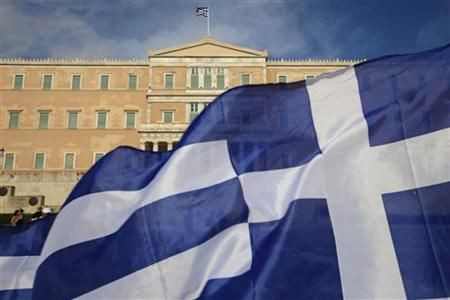Time Running Out for Greece as Bailout Decision Hangs on Debt Reduction

A decision of providing the Greek government with more badly needed bailout cash hinges on a review of Athens’ debt-reduction progress by officials from the European Commission (EC), European Central Bank (ECB) and International Monetary Fund (IMF).
Discussions with Greek officials, which are scheduled to commence on Thursday, will lead to a decision on whether or not Athens will receive the next 8-billion-euro tranche of the 110-billion-euro bailout package agreed to last year.
Greece took an extraordinary step toward getting the cash on Tuesday when the parliament passed a highly unpopular new property tax bill in order to raise more revenues. Green citizens have already vociferously protested against this measure – which would, among other things, cut off electric power to anyone who doesn’t pay the tax.
Greek Prime Minister George Papandreou told business executives in Berlin on Tuesday that with the imposition of a raft of austerity measures, Greece’s budget deficit will fall my more than 5 percent this year.
Reportedly, members of the Eurozone are split on the subject of providing more financial support to Greece – some countries want private investors to take more of a risk related to any additional rescue funds and restructuring of Greek debts. Among other measures, private lenders would be asked to write off about one-fifth of their loans to Greece.
Another proposal calls for expanding the size of the Eurozone bailout fund, which has already rescued Greece, Ireland and Portugal.
Other officials worry that Europe is not responding quickly enough to what may be a Euro-wide debt crisis.
Jean-Claude Trichet, the head of the ECB, told the Italian newspaper Corriere della Serra that national leaders need to demonstrate their sense of direction, and do so rapidly.
Germany, the most important and powerful member of the Eurozone, will vote on the proposals on Thursday.
Still, many officials fear that Greek will default and will have to depart the currency bloc.
Jose Manuel Barroso, the chief of the EC has tried to calm such fears.
Greece is, and Greece will remain, a member of the euro area, he said in speech in Strasbourg, France.
© Copyright IBTimes 2025. All rights reserved.




















